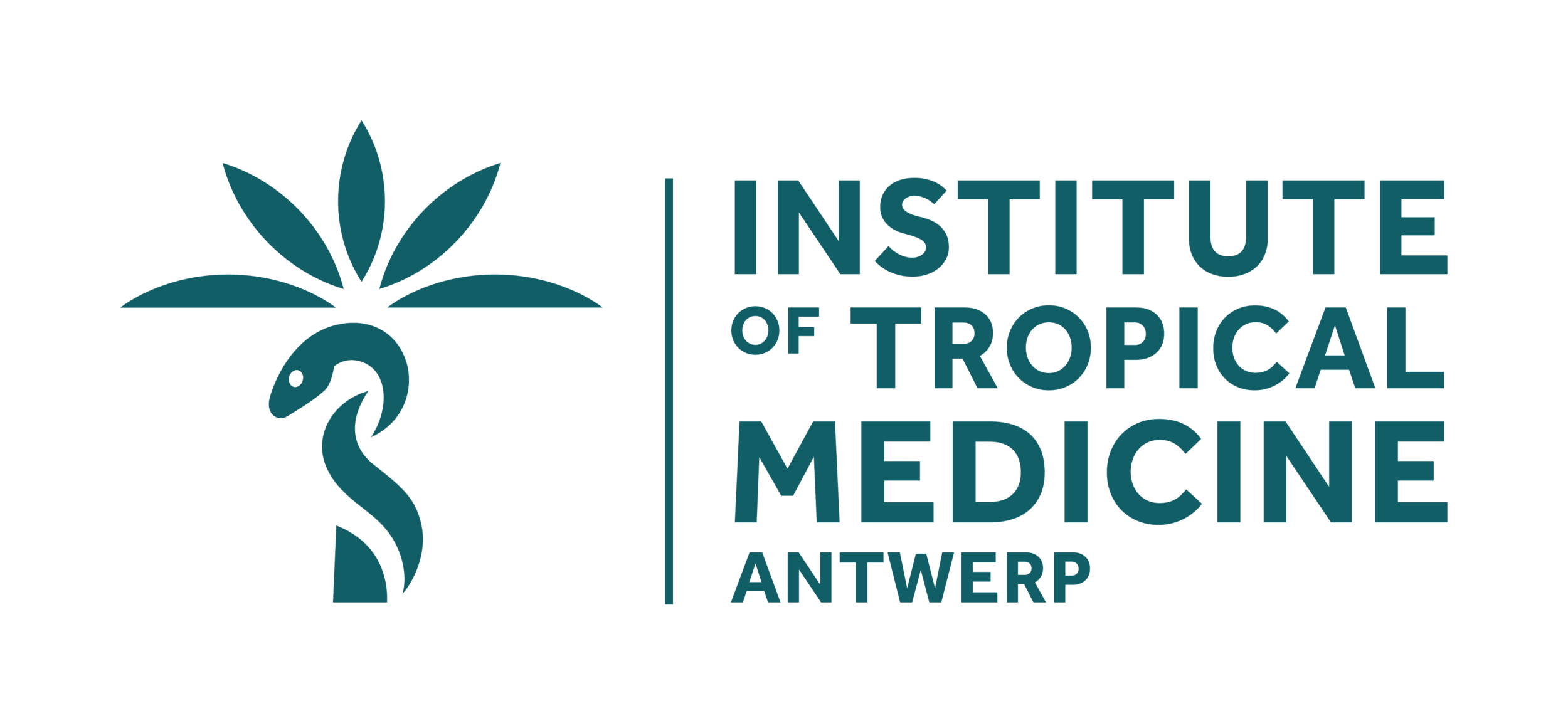The TORCH consortium actively collaborates with and is supported by biomina (biomedical informatics research network Antwerp), an interdisciplinary research network for biomedical informatics and established by the University of Antwerp and the Antwerp University Hospital as part of the Clinical Research Center Antwerp (CRC Antwerp). More specifically, the consortium works closely togeher with Prof. Dr. Kris Laukens, bioinformatics researcher at the Biomedical informatics research center (biomina) and the ADReM datalab at the University of Antwerp.
The Institute of Tropical Medicine Antwerp (ITM) is one of the world's leading institutes for training and research in tropical medicine and the organisation of health care in developing countries. Therefore, the TORCH is excited to be able to work closely together with the ITM mycobacteriology research group of Prof. Bouke De Jong. The Unit of Mycobacteriology is dedicated to improving the health of patients suffering from mycobacterial diseases such as tuberculosis, leprosy, and Buruli ulcer.
Prof. Dr. Bouke De Jong
Since 2010 Dr. de Jong heads the Unit of Mycobacteriology at the Institute of Tropical Medicine. Besides tuberculosis, she studies Buruli Ulcer and leprosy, focusing on improved diagnostics and treatment, as well as molecular epidemiological studies on the impact of public health interventions to reduce transmission, for which she was supported by an ERC starting grant. Together with a very capable team she (co)supervises PhD students from different (endemic) countries.
Prof. Dr. Leen Rigouts
Prof. Rigouts is a professor in tropical infectious diseases at the University of Antwerp (UA), and from the start at ITM she was mentor of many bachelor and master students. In 2018 the Torch consortium together with Prof. Rigouts was awarded a TBM grant for conducting a Trial to compare Whole Genome Sequencing with the standard of care for diagnosis and treatment of Tuberculosis.
Dr. Conor Meehan
Dr. Meehan’s career has primarily involved the use of computational techniques to investigate the evolution and epidemiology of microbes. His areas of expertise include: comparative genomics; whole genome sequencing and assembly; Maximum likelihood and Bayesian phylogenetics; evolution of drug resistance in viral and bacterial pathogens; microbial community ecology and microbiomes; lateral gene transfer; phylodynamics; pathogen transmission and population dynamics. Together with Conor, the TORCH consortium organizes various VLIR courses for capacity building of TB research in low income countries, including Peru and Ethiopia.
The TORCH consortium is an active member of the Comprehensive Resistance Prediction for Tuberculosis, an International Consortium (CRyPTIC).The CRyPTIC consortium is led by Prof. Derrick Crook of Oxford University, UK, and funded by the MRC Newton Fund, Wellcome Trust, and the Bill & Melinda Gates Foundation. CRyPTIC is a world-wide collaboration between TB research institutions all over the world.
The ultimate goal is to achieve sufficiently accurate genetic prediction of resistance to most anti-tuberculosis drugs, so that WGS can replace culture-based DST for TB. This will enable rapid-turnaround near-to-patient assays to revolutionise MDR-TB identification and management. The Odysseus TORCH team has contributed by sequencing isolates and submitting the data to the worldwide survey of genetic variation associated with resistance to 13 antitubercular drugs. The matched genotypic/phenotypic data collected by the CRyPTIC consortium is an invaluable resource to accelerate diagnostic development and for identification of remaining knowledge gaps.



